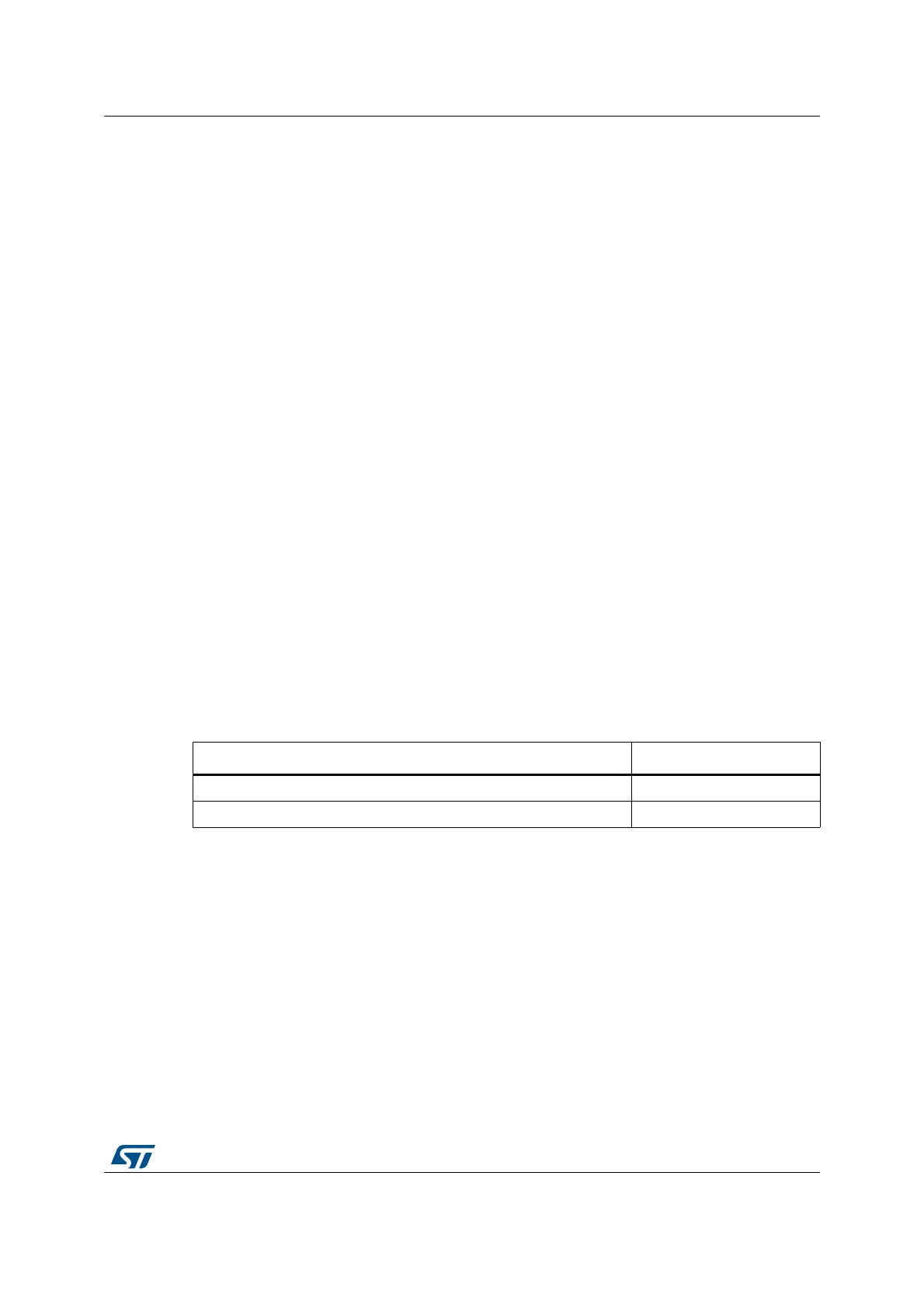PM0214 Rev 9 75/262
PM0214 The STM32 Cortex-M4 instruction set
261
3.4.5 LDR, PC-relative
Load register from memory.
Syntax
LDR{type}{cond} Rt, label
LDRD{cond} Rt, Rt2, label; load two words
Where:
• ‘type’ is one of the following:
B: Unsigned byte, zero extends to 32 bits.
SB: Signed byte, sign extends to 32 bits.
H: Unsigned halfword, sign extends to 32 bits.
SH: Signed halfword, sign extends to 32 bits.
—: Omit, for word.
• ‘cond’ is an optional condition code, see Conditional execution on page 65.
• ‘Rt’ is the register to load or store.
• ‘Rt2’ is the second register to load or store.
• ‘label’ is a PC-relative expression, see PC-relative expressions on page 65.
Operation
LDR loads a register with a value from a PC-relative memory address.
The memory address is specified by a label or by an offset from the PC.
The value to load or store can be a byte, halfword, or word. For load instructions, bytes and
halfwords can either be signed or unsigned (see Address alignment on page 65).
‘label’ must be within a limited range of the current instruction. Table 27 shows the possible
offsets between label and the PC. You might have to use the .W suffix to get the maximum
offset range (see Instruction width selection on page 68).
Restrictions
In these instructions:
• Rt2 must be neither SP nor PC
• Rt must be different from Rt2
• Rt can be SP or PC only for word loads
• When Rt is PC in a word load instruction: bit[0] of the loaded value must be 1 for
correct execution, and a branch occurs to this halfword-aligned address. If the
instruction is conditional, it must be the last instruction in the IT block.
Table 27. label-PC offset ranges
Instruction type Offset range
Word, halfword, signed halfword, byte, signed byte −4095 to 4095
Two words −1020 to 1020
